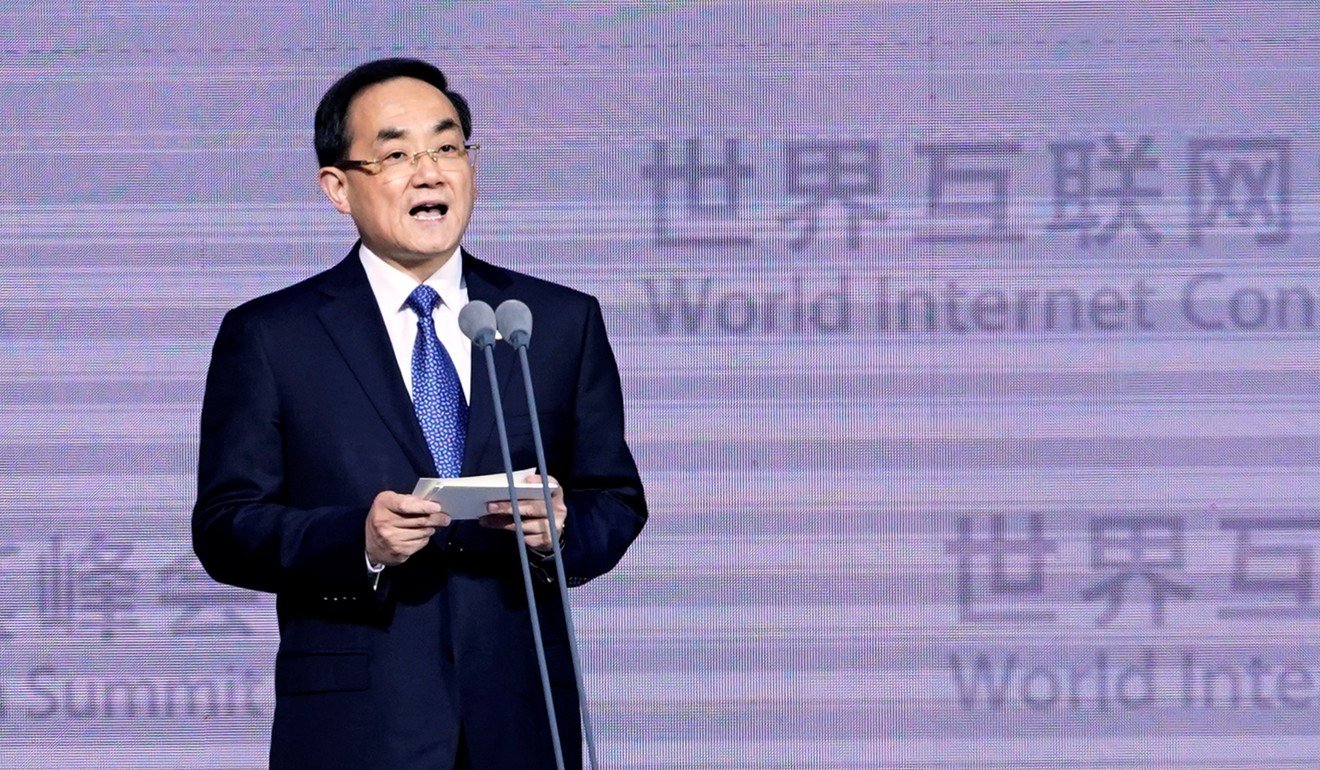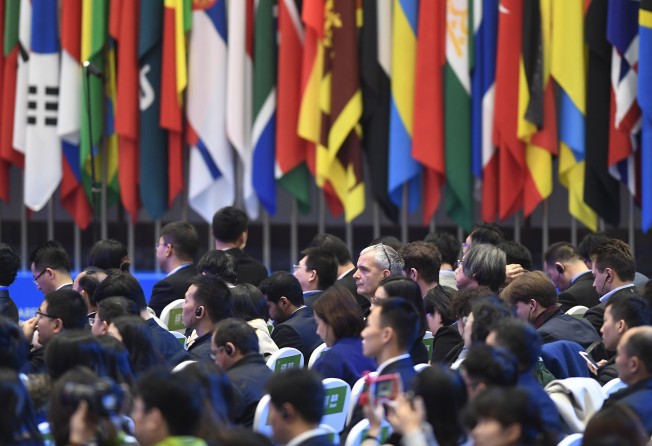
Beijing warned its tough internet controls may hurt foreign relations
Censorship and restrictions come under attack from foreign delegates at conference aimed at rallying support for China’s cyber governance model

China has used a high-profile tech conference attended by top executives from the likes of Apple and Facebook to tout its tough model of cyber governance, but foreign delegates at the event warned Beijing’s policies could harm its relations with the rest of the world.
Xu Lin, director of the Cyberspace Administration of China, on Tuesday read out a list of internet specialists and tech company executives who backed Chinese President Xi Jinping’s latest call to respect the country’s cyberspace sovereignty and promote partnerships.
He was speaking at the closing ceremony of China’s annual World Internet Conference in Wuzhen, Zhejiang province.
The Chinese government uses the event to rally support for its approach to the internet – censorship and increasingly restrictive controls – that it claims does no harm to technology and business development in the country.

But one diplomat said Beijing’s tight grip on the internet would affect the country’s ambition of becoming a cyber superpower, as well as its relations with other countries.
“With events like [this one], China claims to become a great power in cyberspace. However, online communications across borders are being restricted more and more,” said Michael Clauss, the German ambassador to China, who was not at the conference.
Foreign companies and business groups have long complained about the difficulties of operating in China, saying limited internet access and a recent crackdown on the use of virtual private networks, or VPNs, to bypass the infamous “Great Firewall” has affected their work.
“A complete VPN ban would negatively impact China’s relations with foreign partners. What’s the use of establishing a people-to-people dialogue in the 21st century if people cannot communicate online?” asked Clauss.
Beijing’s policy of blocking foreign news sites and other websites also came under strong criticism at a panel session on Monday, with Stephen Orlins, president of the National Committee on US-China Relations, warning China would pay a high price in its relations with other countries.
China blocks sites such as Google, Facebook, YouTube, Twitter and foreign news sites that might carry information that is critical of the Communist Party.
Orlins said the wholesale blocking of access to foreign news sites such as The New York Times “creates distrust towards China among the American elite and American media and affects all the other issues that exist in US-China relations”.
“If you want to read an article on art in New York City, you can’t – even though there’s no way that it constitutes a threat to China’s sovereignty or security,” he said, adding that the technology existed to block specific articles.
“These decisions of favouring security without taking into account the cost have a high cost that’s not fully understood by the regulators in China,” Orlins said, referring to China’s justification for the controls on the grounds of national security.
The country’s new cybersecurity law, which came into force in June, has added to concerns. Many in the foreign business community say they are worried about its scope and ambiguity.
Clauss said it could seriously affect cooperation in science, research and innovation and that China could “certainly become a less attractive place for foreign experts and their families to live and work in” under the new rules.

The “dance” between Chinese internet regulators and users would continue in China, according to Bruce McConnell, global vice-president of US think tank the EastWest Institute, who was also at the conference. But he added that the best technology and most innovative thinking “require openness to other ideas”.
China and the United States held cybersecurity talks in Washington in October, but McConnell said they were largely “theoretical” and called for further efforts to mitigate distrust.
“There is a lack of trust on both sides that limits the willingness to cooperate in sharing information,” he said. “The conversations continue to be very high-level and theoretical. In cybersecurity we need to have very practical conversations including incident response and practical movement to avoid misunderstandings,” he said.